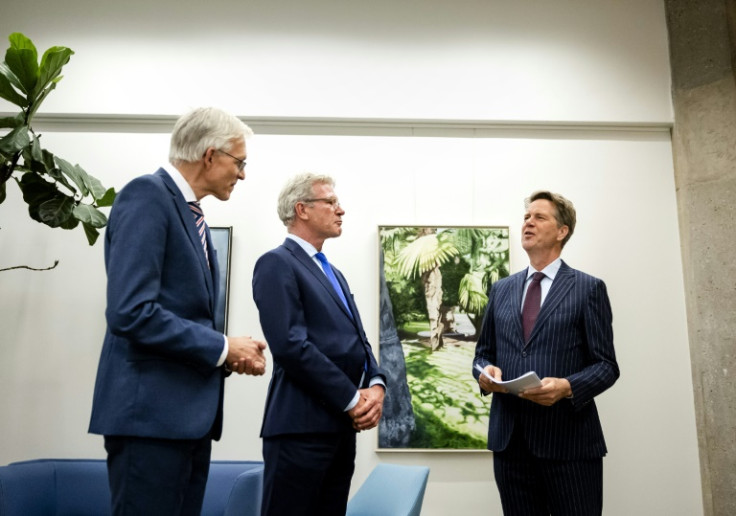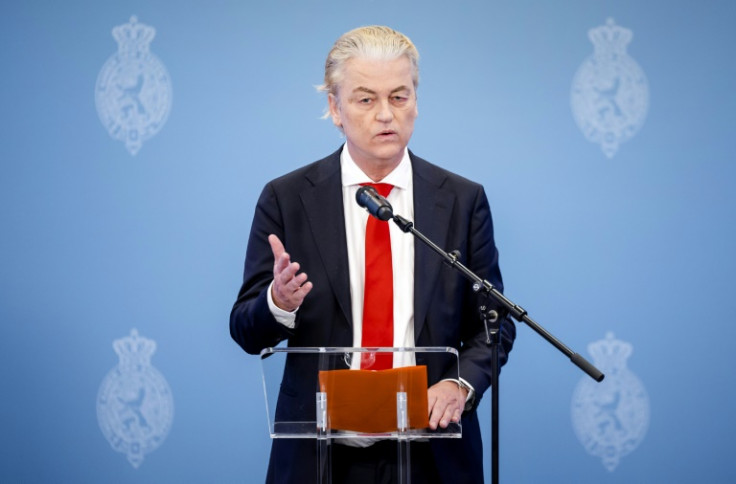New Dutch Coalition Govt Wants 'Strictest' Asylum Policy

The newly agreed Dutch coalition government on Thursday proposed what it called the "strictest ever" asylum policy, including an opt-out from European Union rules, and vowed to examine moving its Israel embassy to Jerusalem.
The 26-page coalition agreement emerged early Thursday after six months of gruelling talks between four parties following the stunning election victory of far-right leader Geert Wilders.
"Anyone who reads the report can see that a lot of things are going to change in the Netherlands," Wilders told reporters as the agreement was officially presented.
He said it was a "historic" day that his far-right PVV Freedom Party was now in government -- "at the centre of power."
"We are writing history today... the sun is going to shine again in the Netherlands," said Wilders.
The agreement said that "concrete steps will be taken towards the strictest ever entry rules for asylum and the most comprehensive ever package to control migration."
The parties said they would file a request to the European Commission for an opt-out on European asylum policy "as soon as possible."
People without a valid residence permit will be deported "by force if necessary," said the report, which is titled "hope, courage and pride."
On foreign policy, the parties commit to keeping the Netherlands as a "constructive partner" in the European Union and support Ukraine "politically, militarily, financially, and morally."
More controversially, the agreement calls to examine the idea of moving the Dutch embassy in Israel from Tel Aviv to Jerusalem.
Jerusalem is claimed by both Israelis and Palestinians, but most governments avoid putting embassies there in order to not prejudge the outcome of negotiations for a lasting peace.
"Taking into account solutions to the Israel-Palestinian conflict and diplomatic interests, we will examine when the embassy can be moved to Jerusalem at an appropriate time," said the report.
The deal says the Netherlands will "adhere to the existing agreements" on climate, but warns "if we don't achieve the goals, we will make alternative policies."
The parties have still not agreed on who will be prime minister of the European Union's fifth-largest economy to replace Mark Rutte, who is almost certain to be tapped as the new NATO secretary general.
They appointed civil servant Richard van Zwol as the so-called "formateur" who will oversee the formation of a cabinet, but he is not the intended PM candidate.
The main contender looks to be former education and interior minister Ronald Plasterk, who also played a key role in overseeing the initial talks.
Wilders himself has already reluctantly agreed to give up his dream of becoming prime minister amid widespread unease over his anti-Islam, anti-European views.
In March, the four parties agreed to aim for a partially technocratic cabinet made up of 50 percent politicians and 50 percent from outside politics.
The far-right has gained in elections across Europe but has struggled to translate votes into power as other parties refuse to work with them.
"It's a worrisome day. We now have a radical right-wing party under Wilders that finds itself at the centre of power in the Netherlands," said opposition leader Frans Timmermans from the Greens-Left alliance.

© Copyright AFP 2025. All rights reserved.



















